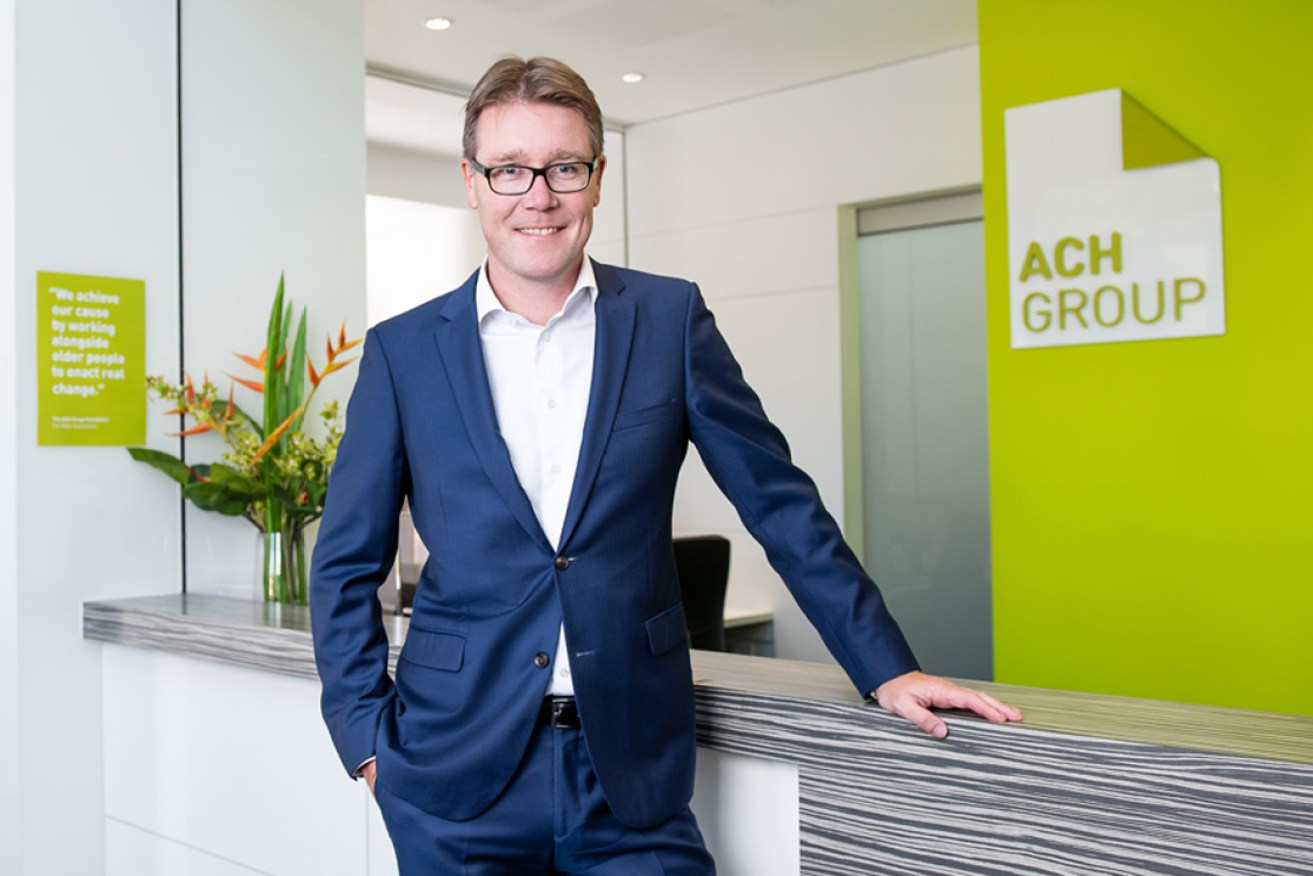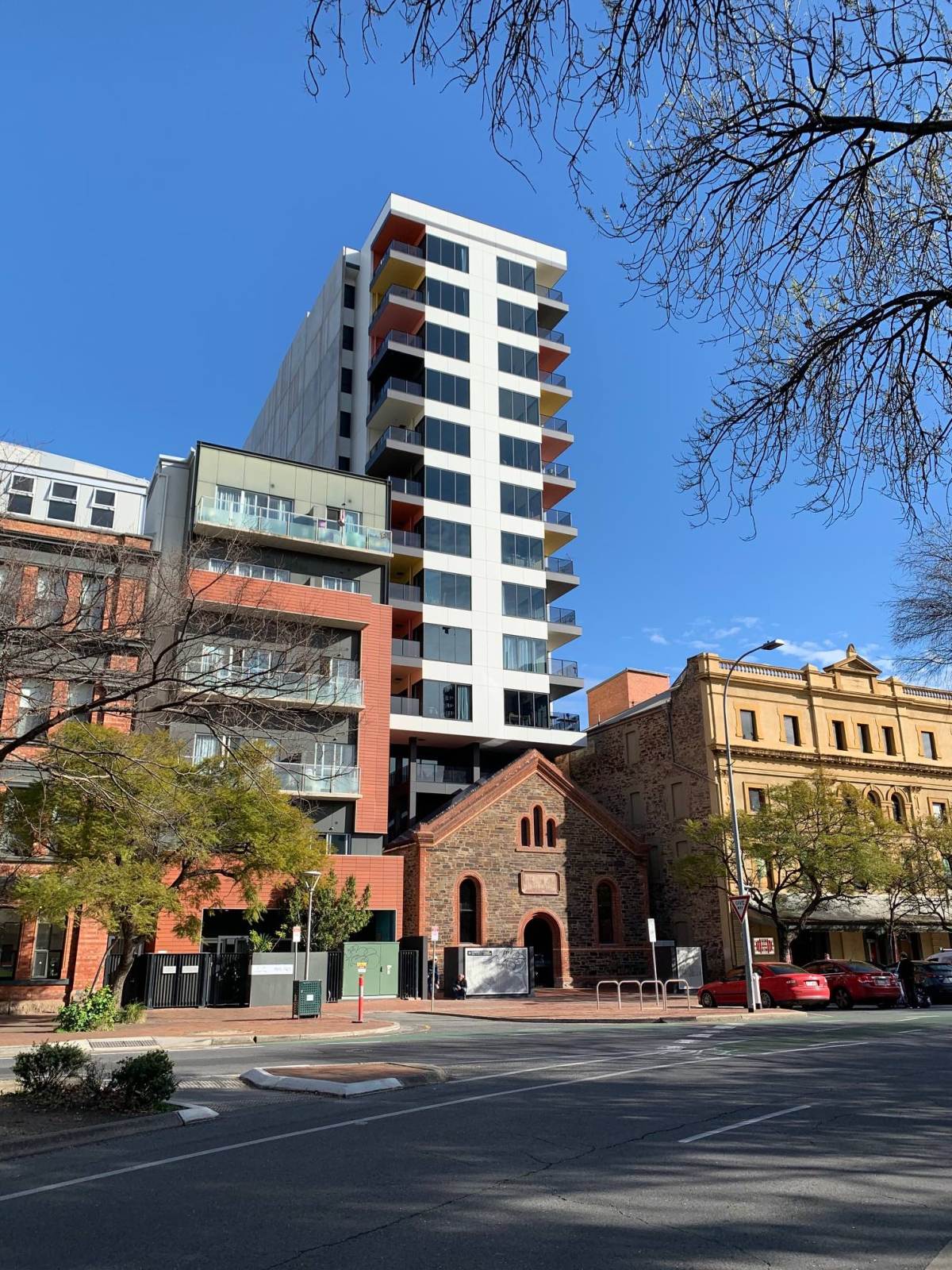Bracing for a Boomer boom
Re-booting aged care services to become more like hospitality in time for the onset of the Baby Boomer generation is firmly in the sights of ACH Group CEO Frank Weits.


ACH Group CEO Frank Weits is taking a modern approach to aged care. Picture: Sam Oster.
The former national client services lead at PwC has been at the helm of the Adelaide-based not-for-profit for the past 18 months after emigrating to Australia from the Netherlands with his wife in the early 2000s.
“I had to train the PwC people that they not only had a functional expertise to deliver but it was ultimately about what the client wants – understand that first and foremost and then think about how your expertise comes to it,” Weits says.
“In aged care it is arguably a similar journey we’re on at the moment. In health care, care is being done to people – I am the doctor, you’re the patient, trust me, here’s a pill, off you go.
“It’s still steeped in traditional ways and the ‘grateful generation’ that we are now looking after who are in their 80s or 90s accept that the doctor knows best and they do what they are told but the Baby Boomers are coming and they will not accept it.”
The number of people aged over 80 in South Australia is expected to grow by 40 per cent by 2030 – fuelled by Baby Boomers, the first of whom are turning 75 this year.
ACH Group was established in SA in 1952 and has eight nursing homes and 900 retirement living homes, including 200 in Melbourne.
It has employed an additional 100 staff since COVID-19 hit in March to take the group’s workforce to 1700.
Weits says recent recruits have included former cruise ship managers and hospitality staff as well as IT workers, nurses and carers, which has reduced the group’s reliance on agency staff to cover shifts.
“While care is what we do, it doesn’t limit itself to clinical care, it’s as much about social care and I have a view that unfortunately more and more older people are socially isolated and social isolation kills you faster than anything else,” he says.
“I want my nursing homes to have that hospitality mindset, I don’t want them to be seen just as a place where you rest until the end of your days.”
The fastest growing part of the ACH business is its home care division, which services about 20,000 customers through Home Care Packages.
The Federally funded packages support older people with complex care needs to live independently in their own homes by providing access to a range of services from gardening help to allied health visits, cleaning and social outings.
Reforms to the program in 2017 have given users control over how their funding is spent, allowing them to choose their provider and the individual services they want.
Weits says with ACH providing services from in-home care through to retirement villages and nursing homes there is an opportunity for customers to stay with the organisation as their age and levels of care increase.
However, he says the Baby Boomer generation is more open to change and will quickly move to another provider if they feel they are not being listened to.
“Everyone is forced to be consumer directed because the government changed the rules by giving the funding to consumers but at the moment the reality is that once a provider is the main provider for that customer it’s still the grateful generation so they are going to stay with you,” Weits says.
“Baby Boomers want to engage and they want to have an opinion, they are much better read and they will go to Dr Google before they come to me. In a way we’re already seeing it because those Baby Boomers are the families of my customers now.
“The disability sector with the NDIS funding is much more dynamic and if people are not being served well then they go somewhere else and I think that will happen in the aged care sector.”

The new Spence on Light. Photo: Marco Krantis
ACH has bought 16 apartments in the 13-storey Spence on Light affordable housing development in the city, which is aimed at retirees and is expected to open later this year.
The group also has plans to build an aged care facility next to the Lyell McEwin Hospital at Elizabeth Vale comprising of eight smaller homes targeted at residents with specific needs or interests.
“I could have a home for Dutch people or I could have a home for people with severe dementia or for people with certain passions such as music,” Weits says.
“Through that home we could also create more of a participatory model where we give them a role in their daily task whether it be cooking a meal with us, or cleaning the house with us.
“I’ve got big plans in the next couple of years but home care is where we see quite a bit of growth.”
Technology will likely play a big part in aged care in the future.
Weits says this has been recently fast-tracked with the COVID-19 shutdown leading to the greater use of Skype and other video calling platforms by residents to stay in touch with loved ones and also led to the implementation of more stringent digital logs to monitor visitor movements at aged care homes.
“Now there is sensor technology and AI technology being developed that senses behavioural changes such as increased trips to the toilet or more frequent coughing and can act on it by suggesting a doctor’s appointment or something.
“If we can do that well, it will allow people to stay in their home much longer because technology will just sit in the background and if something goes wrong it can call help in.”
Weits is also the Honorary Consul of the Kingdom of the Netherlands in South Australia and the Northern Territory and has used his networks to trial “Magic Table” technology from the Netherlands at two ACH Aged Care Homes.
The “Magic Table” technology uses a data projector to project interactive games onto a table that activate the part of the brain that helps people living with dementia engage much more.
“We have residents who haven’t smiled or talked to anyone in months who all of a sudden can laugh, talk, engage and become more settled. So that technology is about quality of life and it’s quite amazing,” he says.
The average age of new home care package holders coming to ACH is about 78 while people tend to move into residential aged care at about 84.
Weits says there was a time when residents would live in nursing homes for 10 years but the push for people to live in their own homes longer now means aged care homes residents generally had more complex health care needs.
He says this will be amplified when baby Boomers start flooding the system in the coming years.
“We now have 50 per cent of our residents come in with a form of dementia and we anticipate that will grow up to 80 per cent.
“The nursing home of the future will most likely be someone who is palliating or someone with dementia who simply cannot be managed safely at home.
“There is an ideology playing out that says no one wants to go into a nursing home but there is a reason why they are there – if you don’t have nursing homes they all end up in hospitals and nobody wants that.
“You might only need a bit of gardening help at home now but if you ever need a nursing home then I can look after you all the way.”
The growing sector presents an opportunity for Weits to increase ACH’s presence in the eastern states but he says the focus for the next three or four years will be in his adopted home state.
“We are a proudly South Australian business and I do feel there is so much more growth in this state that I can realise,” the former board member of Port Adelaide Football Club’s community development arm Power Community said.
“SA is a highly competitive market and if you can be successful here you can be successful interstate.
“But one advantage of being a not-for-profit is I don’t need to grow interstate to satisfy shareholders so I still want to grow but do it while providing an amazing service to my customers.”




